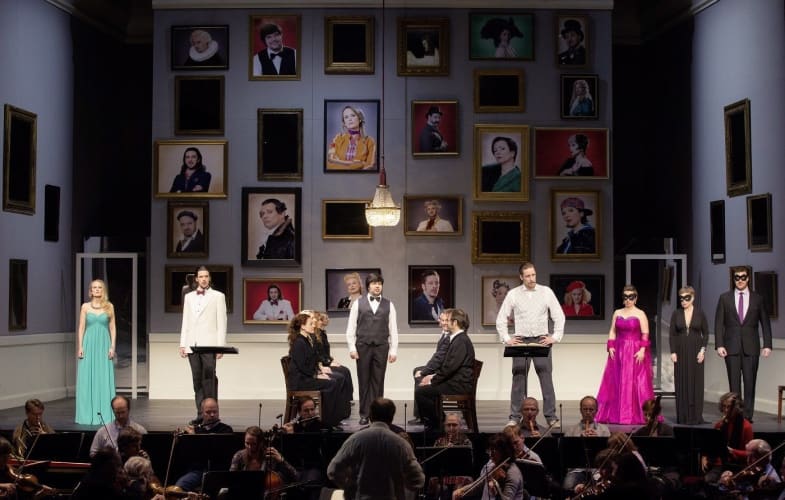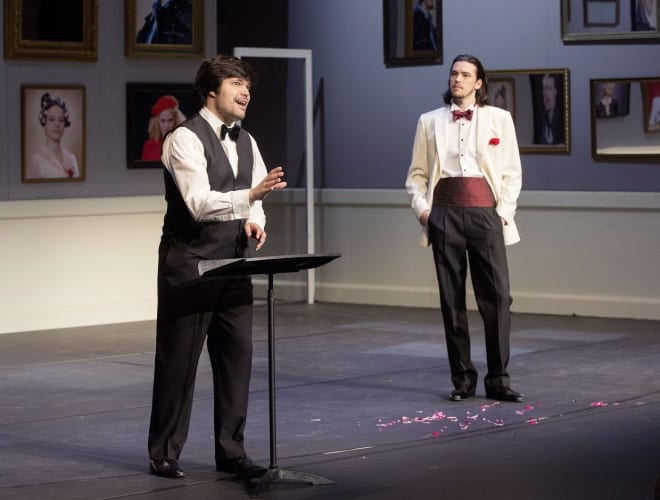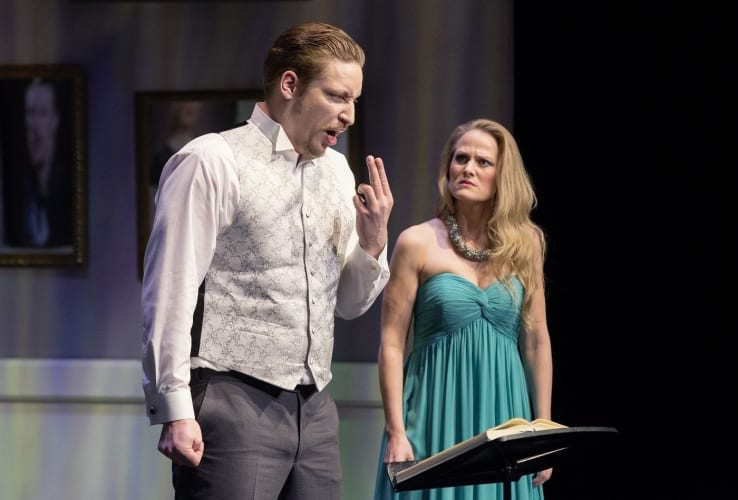After so many brave but ultimately unsatisfactory concert performances of operas due to the COVID crisis, it is a surprise to come across one where the company has simply chosen to forego a full staging.
This is one of the three Da Ponte / Mozart operas that Nikolaus Harnoncourt presented in concert format in 2014, the year before his retirement.
His reasoning, for what would be his last words on these masterpieces, is set out in the accompanying booklet and more particularly in a fascinating 52-minute behind-the-scenes documentary that is the most interesting part of the DVD package, even if one does not accept all the 84-year-old’s propositions.
In it, Harnoncourt comes across on the one had as an engaging, intense, Gargoyle-like sage with profound and original insight into the music, but on the other can seem arrogant and misogynistic.
"All the women he has seduced love him back," he says of Giovanni—which would raise more than an eyebrow of Donna Anna and his other rape victims. "In the eyes of the audience, he is in some ways a hero," he continues, so in the opera’s famous catalogue aria, Ruben Drole’s Leporello accordingly smooches Ma, in Italia in awed admiration, as if recollecting the taste of the sweetest wine.
The conductor may be play-acting to some extent when he exclaims before soloists and orchestra, "there’s no-one else here who knows anything about music," but it requires a generous amount of chutzpah not to present the work fully-staged as intended by composer and librettist, to forego the services of a director and to raise the position of his Concentus Musicus players so as to partly obscure the view of the stage from the front stalls.
Inevitably, even on this cleverly-filmed recording, the dramatic power of the piece suffers at times, as singers face the audience, the death of the Commandatore is signalled by the wave of a bloody glove, or Maite Beaumont’s Donna Elvira turns the pages of the score as she sings.
Overall, however, the concept works better than one might expect, largely through Harnoncourt’s meticulous attention to textual meaning. "Piano," he urges repeatedly during the rehearsal, and one is struck immediately how much quieter the music sounds in performance.
Even more distinctive is the conductor’s approach to recitative, in which—citing historical practice—he allows his singers considerable freedom of pitch and note values against the beats of the orchestra. The former sounds surprising at first, but the latter really aids convincing, naturalistic expression, notably as the Don, Andre Schuen, exuberantly orders a banquet in Finch’han dal vino.
Schuen is every inch the arch seducer, tall, erect, shifty, with the hauteur of unquestionable privilege, with a smooth, legato best heard in quieter moments such as the mandolin-accompanied Deh, vieni alla finestra.
Drole also enjoys the latitude of tempi—like Sinatra, Harnoncourt tells him—for example when discovered in disguise to protect the Don. His voice has a rich, fruity quality, he does a passable imitation of his master’s to boot, and a natural talent for comedy makes him a star of the show.
The other is Beaumont as Elvira. Her lovely, rounded voice has great depth, and she is equally confident in passages of quiet control and of fury and tenderness in In quali eccessi, an aria of conflicting emotions that brings the house down.
Apart from the two aforementioned, the cast seems to have been assembled for the sweetness rather than power of their voices, and possibly for their youth and willingness to approach piece with fewer preconceptions.
Mari Eriksmoen is a charming, insinuating Zerlina, really bringing out her indecision in the particularly slow tempo of La ci darem la mano. Mika Kares is an excellent Masetto (doubling as the Commendatore), with a warm tone that has just sufficient oomph when needed.
Mauro Peter as Don Ottavio has a beautiful mid-range, well displayed in the gentle lilt of Il meo Tesoro, but seems a bit constrained dramatically, and one gets the sense he would feel more comfortable in a fully-staged production. Christine Schaefer is a disappointing Donna Anna; her voice is lovely when allowed to expand naturally but she struggles when told to turn down the volume.
In justifying his preference for a concert performance, Harnoncourt argues that the subtext can be found in the music. This unconventional staging is revelatory in that regard, but it makes me want to go back to a full production, with the benefit of what I have learnt from this one.


